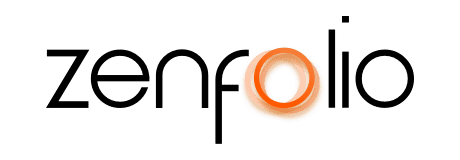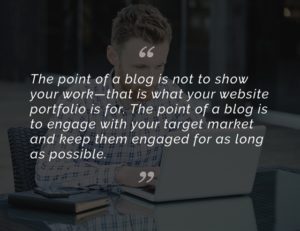50 Shades of SEO: Link Your Way to the Top 50 Shades of SEO – Part 1
May 12th, 2017
50 Shades of SEO – Part 1
Link Your Way to the Top
By Eugene Feygin
*This article was first published in 2015. The content has been so helpful to Zenfolio users that we republished it!
SEO: it may not be the sexiest topic, but it’s crucial for a photographer today to know all about it. Why? Having SEO implemented will drive more traffic to your site so you can gain more clients and sell more. In the first installment of our SEO series, we talk about link building, a crucial element in gaining traction to your website.
Read 50 Shades of SEO Part 2: How Blogging Can Boost Your Business.
Read 50 Shades of SEO Part 3: Keywords are Your Best Friend.
Read 50 Shades of SEO Part 4: The Secrets of Social Media.
Why are links such a dominant part of SEO?
The point of getting a link from another website is that search engines use this as one of the leading metrics in deciding who ranks at the top of the page.
Imagine that you are an expert at photographing corporate events, and your friend works at an industry-leading corporate company and tells his friends that you’re the best. Linking is basically the same concept, but when a site links to your site they are publicly endorsing you (kind of like LinkedIn). When they use certain phrases such as “best corporate photographer” to link back to your site from their corporate site, search engines see that as a signal that a website may be relevant to a user’s search for the best corporate photographer. If they are authoritative enough, that endorsement alone can boost you toward the top of search results.
You might read this and say, “Well then I am going to try to get a lot of links from all of my friends linking back to me with the phrase or keyword I am targeting.” Due to manipulation over the years, that is a bad idea.
Search engines have spotted this technique and have caught on that their algorithm simply needs to get better at sifting through those types of strategies. Regardless of this advancement, links are still a huge aspect of your rank or position on Google.
How do you get more links?
Here is where it gets a little dicey. Search engines do not want you to ask for links, and yet they are still important.
Since links are a critical piece to the game, asking for links needs to be a strategic process. For starters, it’s important to consider the text that makes up your link—not the destination link but the actual text that is clicked that links a visitors to your page. Sometime it’s a graphic that links to your page, but ideally it would be text so that a bit more information is provided when the site is indexed regarding what the link is directing to. This text that links to your page is called anchor text. Your best bet is not to specify the keyword(s) you want the website to use when linking back to you. This will ensure there is enough variety, and even if they just link back to you with your website address it is still a signal to search engines that an authoritative figure is linking back to your site as a qualitative resource (even if it’s a nofollow link).
What is a nofollow link?
When a site links to another site they are in essence saying that this is a great site and we are backing it 100 percent. A similar idea would be this: You work at a large company and your best friend wants a job. You go to HR and you put his/her resume on the table and tell them that you vouch for them. You are in essence increasing their chances of getting the job simply because you already have authority/importance at the company. In link building, this would be associated with a dofollow link (a typical link). In that same workplace example, if your best friend wants the job but you simply tell them where to apply, you are helping them get the job but you are not vouching for them in any way. We would call this a nofollow tag.
Typically, if you’re linking to any website outside of your own, you need to be careful who you link to. Otherwise, simply use a nofollow tag to not associate with the website. Most people use this tag if they are promoting a product or are being paid for advertising, or they simply want to provide a resource to their readers but not pass their authority onto the resource. By default most links are dofollow links.
What is an authoritative figure?
In the past, marketing experts relied on the page rank of a site to determine authority on the web, but that metric is slowly being phased out. Instead, think of authority in a different fashion. Some experts have mentioned that this metric may be removed completely as it has not been updated in more than a year. However, until that happens we are still stuck with this as our online yardstick.
Often an authoritative individual or company in an area will have a strong presence in the community as well as on the web. In the end, it depends on who you assess is your target market and where you can intersect that market utilizing the authority of several key players in your area. Don’t think of finding a person just to get a link to your site or a retweet. Think about how they can help your business as a whole. Maybe you can partner with other companies in your field to create a stronger brand that can offer multiple services and at the same time support one another. Photographer Central is a great example of a specific referring site with authority in the photography industry. In the end, it all boils down to your marketing strategy.
How do I get a recommendation from this authoritative figure?
Strategies vary greatly. You can guest author on blogs since blogs need content and will provide an attribution link at the bottom of the post. Another option would be to simply provide some kind of service that can benefit the followers in their industry. You need to understand that, as an industry leader, the industry looks at that individual or company constantly for insight and direction. If that leader is absent or not being proactive then they are downgraded from their status. Ideally the goal is to become an industry leader, but to become one is tougher than to stay one.
Photographer Central
Additional link-building opportunities:
- Sign up for authoritative directories in your industry such as PhotographerCentral.
- Create content or information that will be useful to your industry and promote it heavily. For example, tips on proper lighting techniques, types of lenses to use for different applications, or how to properly price prints as well as your service. People will link to this information (also known as link bait) and in return provide you with authority from their site.
- Provide photography service for a charity or an event that could potentially link back to you when they post the photos with your credit link. Make sure to not specify the keyword for them to use.
- Examine authoritative sites that already link to your competitors within your area as well as beyond and see if any of their links are broken (go to nonexistent pages). Then ask if they would be interested in linking to your company instead.
- Examine what links your competitors have pointing to them and find out how you can be included.
- Reach out to local universities and schools where your knowledge could benefit their students’ education—from teaching a class on lighting to showing the latest Photoshop editing techniques.
- Try to get in the news by releasing case studies or controversial information (perhaps you have an opinion you would like to voice).
- Sponsor a local organization or club.
- Get on review sites, such as: Yelp, Google+, Facebook, Angie’s List, etc… This is crucial for brand perception and most photographers ignore these channels!
Not all links are created equal
Consider the relationship. If Annie Leibovitz recommended you to her friends for a photo gig versus your friend next door (who knows nothing about photography), think of the impact that recommendation or link can have on your business. If a link comes from a site that is not related to your field it may have less influence on your position in search—even more so if that link comes from an individual who has very little authority in the field.
Giving helps you grow
It’s important to examine how you can help other people and/or organizations in your community. This will help you establish your company in the offline and online world as an industry leader. Think about the last conference you went to and how many speakers presented on a variety of topics? These individuals/companies are not only educating but also promoting their business, and most likely the event has a website that will list links for each speaker and more information about them. Think about how you can help your community with your skill set and just maybe they will help you in return. Whether it’s a link or simply a recommendation, either one grows your business.
Want more? Read our Part 2 post on blogging here.
* * *

Eugene Feygin is a Chicago-based SEO consultant with more than a decade of experience helping local photographers and small businesses around the country strategically utilize online marketing. He is also a fashion and corporate event photographer who produces high caliber work for event and production companies around the country. Check out his photography website as well as his SEO consulting website.



